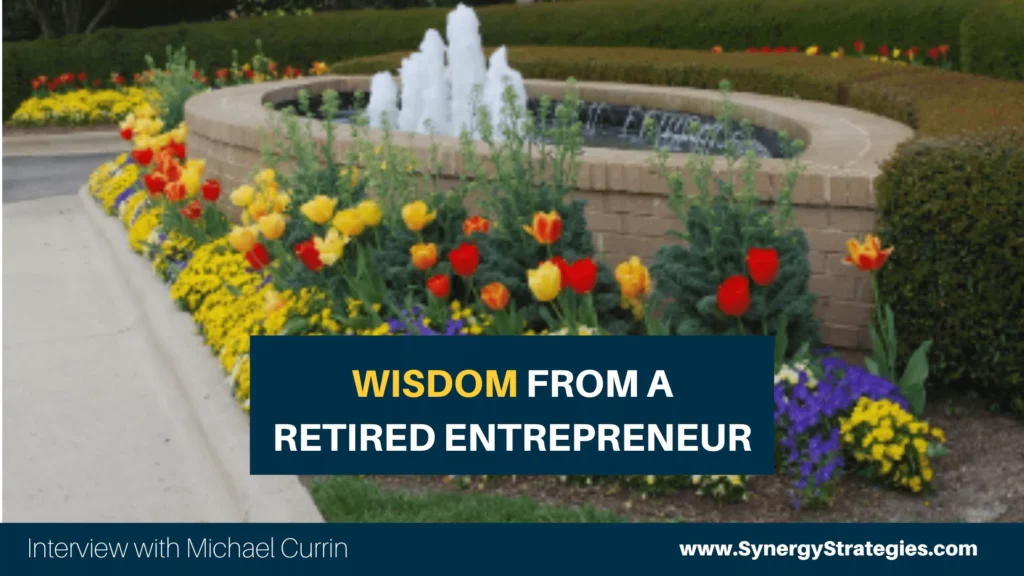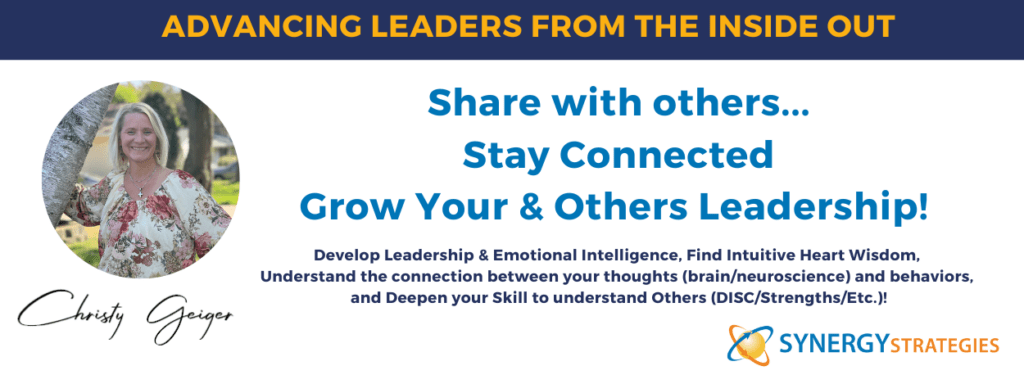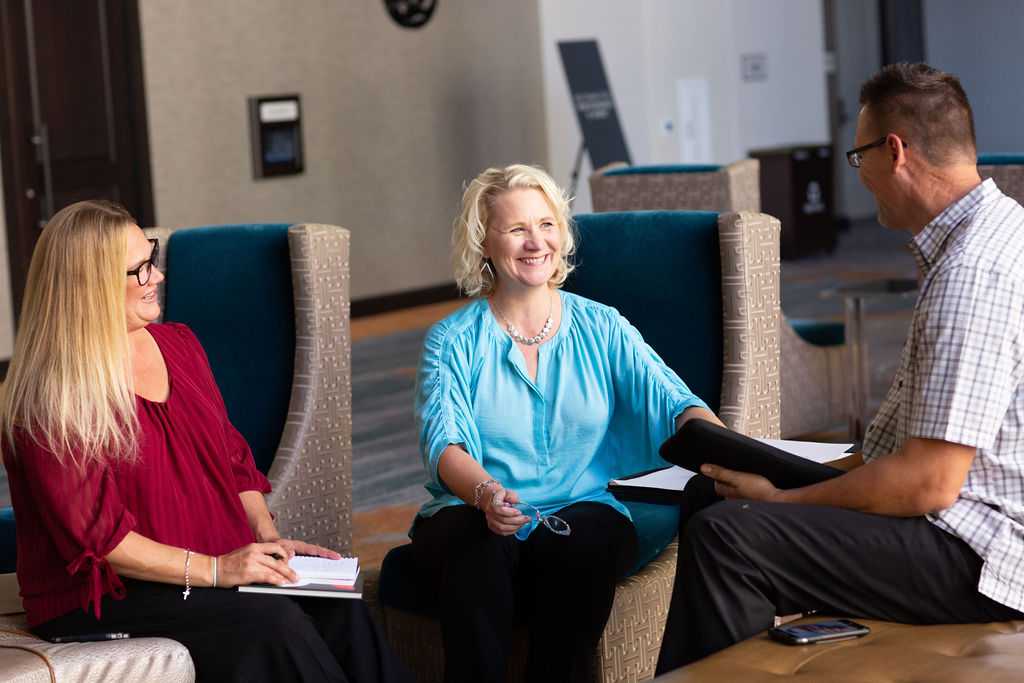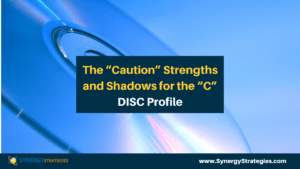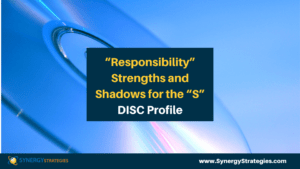Recently, I had the pleasure of sitting down with Michael Currin to discuss his reflections on work, business, and life. Michael built a landscaping company in his youth. I had the pleasure of connecting with them in 2007 (15 years ago) and coaching with his team. Michael shares his thoughts on what helps businesses to be successful and how coaching supports that. Here are the highlights from our interview.
HOW DID HE GET STARTED?
Michael went back to school and got a degree in landscape horticulture after graduating from Wake Forest University and coaching and teaching in high school for a year. After completing his degree in Landscape Gardening degree from Sandhills Community College he got a job with Owen Garden Center in Fayetteville, NC with owner Stan Owen. Michael worked for three years from ’76 – ‘79, as an employee of the garden center. During that time, his plant knowledge and landscape design and construction skills helped them develop a strong landscape business. In 1979 Stan and Michael started Greenscape Inc and operated it out of the garden center. It was a gift to be able to start this and run it with Stan’s support. Around 1986, Michael bought Stan out and moved the business to its own location in Fayetteville. With growth happening to the north in the Research Triangle area (Raleigh, Durham, Chapel Hill [RDU]), in 1986, Michael bought a house in that area which became the base for the crews to live in for the week of work and come home to Fayetteville on the weekends. Michael chose Doug Berlin to be the manager in that new branch. Doug and his team were key to the growth of the company, especially in the commercial landscaping sector. In 1991, Michael moved the corporate office to that location in Holly Springs and relocated his family to the Triangle.
“Our intent was to bring our design-build approach to the Triangle which we felt was somewhat missing.” (LESSON: Business and work evolve and develop. Building a business does not take a perfect plan, only a desire to serve, grow and look for opportunities. Michael worked hard and was blessed. It isn’t about perfection; it is about getting out there and doing your best to move things forward).
WAS IT ALWAYS EASY?
After moving the business to RDU, Michael came into a time of struggle. It was in the ’90s and the work seemed like 5 steps forward and 3 steps back. He reached out to SCORE, a free SBA business consulting group, and learned this was normal in a recession. Economies change and impacts business. It doesn’t mean you are doing something wrong; it is part of the ebb and flow of business. Michael remembered feeling he was not crazy or incapable. He found it encouraging to know others were going through the struggle as well. They just kept moving forward. Having advisors and mentors was invaluable to building the organization and a management team. (LESSON: Emotions are real and human. The greatest leaders can struggle with depression and discouragement. Don’t let that define you or tell you that you are in the wrong seat. Press forward. It matters.)
WHAT INSPIRED HIM?
This led to Michael’s motivation and vision to “BUILD A COMPANY THAT CAN GO ON BEYOND MY INVOLVEMENT.” He knew to do this he needed to build a team of capable and competent people. He knew that he needed to grow so people could grow. He knew maintaining was not growth and that in business and learning he and the team could not stay status quo. He was never motivated by money (any financial goal was just to keep the equation of revenue over costs to stay profitable). It was about growing an organization that lived beyond his involvement. (LESSON: Successful businesses are rarely if ever money motivated. They are cause driven and usually that cause is something connected to a human mission (care of people and place)).
WHAT MADE IT WORK?
COACHING: Michael became involved in the landscape state association and was exposed to more different consultants. He appreciated them because he knew the value of growth and training. He worked a lot over the years. In 2007, one of his seasoned salesmen, Greg Smith, went to a Time Management workshop at the local chamber. Michael, being an advocate for bringing useful learning to the team, hired the presenter to bring the same training in for the team. This was the start of a relationship with me (Christy Geiger and Synergy Strategies coaching). Since that introduction, I have had the honor of coaching Michael, his HR leader, the Ops Manager, and many others. Michael believed in the investment of coaching because he knew he was investing in developing people and ensuring they could advance and grow. Michael knew part of building a great team was finding the right people to do the right job. He learned to not take it personally when employees moved on. Employees stay only as long as it benefits their interests. The key is for both the company and employee to benefit equally. He understood people would rise to a certain level but then could get stuck, which would create difficult situations and tough decisions would need to be made. If he could provide coaching and mentoring (internal and external) it would support the team. He realized there are different strategies to execute but real success came down to training and developing people.
Michael knew other perspectives were useful in shaping his own development. He appreciated that coaching asked questions that helped him to think about something from a different perspective. Also, the regular accountability and routine helped with consistency and follow-thru. He acknowledged that not everyone might need a coach, and some might benefit more, but having a coach is beneficial to support you, the business, and your success. This works when the coach and client have mutual respect and are committed to curiosity, growth, and learning.
Michael saw coaching as a relationship instead of a project. He saw it as an ongoing relationship that provided weekly conversations to reflect, assess, challenge, plan and hold him accountable for important things such as what was done, not done, what was in the way, etc. It was different from a consultant who was present for a few days and then left with no regular accountability or follow-up. He found a coach instrumental over the years to discuss the challenges and create a structure for regular focus to accomplish goals and move forward.
HR/HIRING FOCUS: Another thing that made a difference in the growth of people was an early commitment by Greenscape to have a full-time HR department. His wife Scottie was the first full-time HR manager when they opened in the Triangle. She had great people skills and was very process oriented. Michael knew the company needed this role because hiring great people was where their success lay. Michael shared other examples such as his son, Daniel, coming to work in sales out of college (now CEO) or Leslie who came out of NC State with a passion and focus on their floral program (now President). Michael paused, reflecting on his joy, appreciation, and feelings of how rewarding – to the point of tears – it is to watch each person and the team do what they do, grow in their brilliance, and see them develop to their potential! To see the company and each team member grow is so very gratifying.
TEAM/PEOPLE: As Michael thought about people, he mused about who can grow and who will grow. He noted through the years who stays versus who moves on, etc. He reflected that you can’t really know, and a business can’t really pay enough that people don’t have other choices that would pay more. Everyone has external forces and there are many things going on in a person. We all have some baggage and factors which affect our work and decisions. Change can hijack people and great leaders. Therefore, it is important that leaders can stand back and not be caught in the moment or get reactionary. They need to see the good. Remember people will come and go. Be unattached and don’t judge loyalty. Surrender and let go. Keep building and make things better. Develop people interpersonally and train them in the skills needed. Be unattached to keeping them, knowing they could move to another place or position, but that their great training will benefit them wherever they go and whatever they decided to do. He hoped this has been the case and found over the years that it has been true. It affirmed his mantra to: Invest in people. Develop people. Support them to be their best, wherever that is. He reflected on how he has seen his son Daniel thrive with some of these skills of standing back and allowing another person to engage. He reflected at times on how it was hard to not react, but this was a positive and balanced mindset to keep developing.
MINDSET: He commented that he learned to not take changes or decisions as personal but to always work to find a win-win. Michael remembered learning years ago the lesson about “give and take” of an employer to employee from his original boss, Stan. Michael recalled going in once and putting some demands on the table regarding asking for a raise or something. Stan said, “everyone is replaceable.” It was a good lesson Michael learned as a worker or one who is hired to be humble and to not think of oneself as higher or better than he ought. Also, as an employer, it can hurt to lose people, but new people will bring new skills.
Really business is just a people business. What does this really mean? Michael noted that leadership requires you to do what people need versus what you want. This forces you to improve in areas you might not want to. You must keep learning and growing rather than being attached to being right. To serve others and create the space for them to grow, requires a CULTURE (you and them) on a quest to learn new things and be curious about how things work. He remembered that it could get you in trouble to ask too many questions, but sometimes there is great benefit in creating space to ask, take a break or time out and then revisit things and move forward. Success is the ability of people to be vulnerable to raw learning and transformation. The ego does not need to protect. It is natural for people to open to the raw core but when the ego protects, the work and relationship will be more surface and transactional. “The work” is the vulnerable look at oneself. This allows for a great culture to emerge.
LEADING INSIDE OUT / SELF: Michael remembered the Leadership Institute in Greensboro, Bell Institute, coaching, etc. which all contributed to life-changing learning and transformation. A person must be ready and want to grow because the work must be intentional. Michael reflected on the importance of doing his internal work first. To lead people well, he needed to grow in his ability to look at his ego, humility, and vulnerability. He had to be willing to acknowledge something he didn’t do well and could be done better. He was willing to accept we all have different roots, uniqueness, and strengths. He realized his own judgments and the struggle to watch when others are not doing the work. The reality when doing the work is the greatest fertilizer for personal growth. Michael summarized the key to coaching: for a leader’s heart to be one of learning, growing, humility, and willingness to look at oneself first.
LESSON: As business owners, we can often think leading an organization is just trying to get a job done. However, more important than the activity is the people. People matter. People selection matters. Leadership matters. People with new or simple skills with the right leadership can do extraordinary things. The combination of the collective people matters. Corporate culture reflects the heart of the people (leaders and people). People buy into the culture. They are capable of what needs to be done and need leadership to guide them. In the end, the right people and the right leadership will produce great results.

